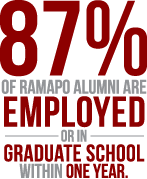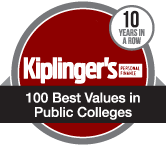College Catalog: 2011-2012
School of Social Science and Human Services (SSHS)
Dean: Samuel Rosenberg
Majors/Concentrations:
- Africana Studies
- Environmental Studies
- Law and Society
- Psychology
- Social Science
Concentrations: - Social Work (B.S.W.)
- Sociology (B.A.)
Concentrations:
Graduate Programs:
Minors:
- Africana Studies
- Environmental Studies
- Gerontology
- Psychology
- Sociology
- Substance Abuse
- Women’s and Gender Studies
Certificates:
Programs:
Other programs offered by the Center for Innovative and Professional Learning (CIPL):
Related Links:
- Emily Abbey
- Erin Augis
- Gordon Bear
- Robert Becklen
- Michael Bitz
- Carol Bonilla-Bowman
- Jacqueline Braun
- Joseph F. Cataliotti
- Brian Chinni
- Naseem Choudhury
- Donna Crawley
- Anne DeGroot
- Martha Ecker
- Michael Edelstein
- Cort Engelken
- Kathleen Fowler
- Linda Gilman
- Sandra Gonsalves-Domond
- Marshall Harth
- Wayne Hayes
- Peter D. Heinze
- Howard Horowitz
- Mark Howenstein
- Shaziela Ishak
- Dominique Johnson
- Karl E. Johnson
- Mitchell Kahn
- Ellen Kaiden
- Cherrie Kassem
- Elvira Katic
- Kristin Kenneavy
- Kathryn Krase
- Richard Langheim
- David Lewis-Colman
- Kim Lorber
- Aaron Lorenz
- Henri Lustiger-Thaler
- John McLaughlin
- James Morley
- Julie Norflus-Good
- Eva Ogens
- Lysandra Perez-Strumolo
- Maya Poran
- Paul Reck
- Christian Reich
- Ellen Ross
- Nicholas Salter
- Susan Scher
- Mihaela Serban
- Frances Shapiro-Skrobe
- Tilahun Sineshaw
- Robert Sproul
- Mary Starke
- Alexander Urbiel
- Ashwani Vasishth
- Marta Vides Saade
- Leah Warner
- Jillian Todd Weiss
- Behzad Yaghmaian
The School of Social Science and Human Services (SSHS) offers a rich and varied curriculum with well-prepared courses and plenty of opportunities for fieldwork and experiential learning. Our educational philosophy is based on the following set of core values about education and life.
To understand the complex worlds of people, at the level of individuals, small groups or whole societies or civilizations, it is imperative to have a sound historical grounding. History informs us how things came to be and, by implication, what constraints we face in trying to effect social change. Among the requirements for a Social Science and Human Services degree are introductory and upper level courses designed to mold historically and socially informed graduates.
Social awareness and insight is enhanced, and manifested, in our willingness to give back to our respective communities, as students, as educators, as human beings. Positive societal transformation occurs to the extent that an informed citizenry cares, and gets actively involved. The School of Social Science and Human Services tries to foster such convictions through, among other things, fieldwork, co-op, service learning and volunteer opportunities as well as first-rate classroom preparation.
Learning does not merely take place in the classroom. At least as important as listening to professors lecturing, are the direct “life experiences” each one of us has in our respective communities, provided these are accompanied by proper guidance and reflection. Again, this is the object of guided fieldwork, service learning, co-op and independent study experiences, all of which are essential elements in the overall education offered in our school.
As we envision the 21st century, technology is bringing the people of the world increasingly closer to each other. More than ever in human history this century will force us to tackle issues of cultural and experiential diversity, as well as the ecological interdependency that these developments bring. This will require ever greater sensitivity to and understanding of the varieties of human sensibility and experience, within as well as outside our own culture. Students affiliated with the School of Social Sciences and Human Services will be exposed to insightful analyses of prevailing societal patterns which affect cultural relations and insight, such as divisions based on race, gender, disability, social class, national origin and differing cultural backgrounds. They will learn to critically read and incisively evaluate the great number of social science facts and information provided by the major media, through courses in social issues and scientific methodology as well as through practical experiences that foster social, psychological, statistical and ecological literacy.
The twelve credit program of Core courses, required of all students who graduate from the School of Social Science and Human Services, reflect the above goals.
Required Core Courses
Social Issues
History of Social Thought
Sustainability
Total
4
4
4
12





